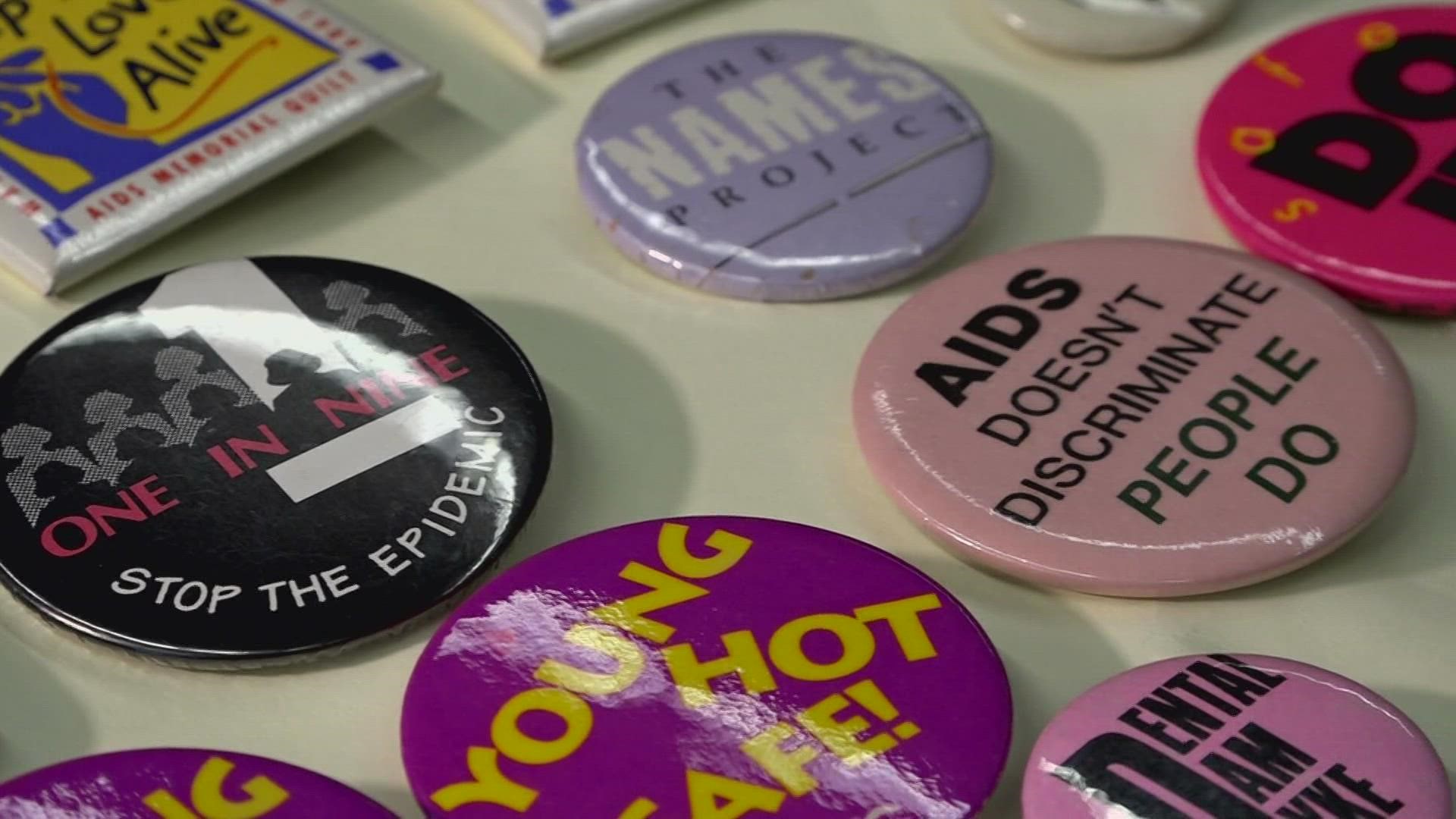PORTLAND, Maine — Behind locked doors inside the University of Southern Maine's Glickman Library is a collection few people in the state have seen.
"There's got to be over 300-400 feet of material," Susie Bock said.
Bock is the coordinator for the library's special collections, including the largest collection of LGBTQ+ artifacts.
From t-shirts to buttons, to signs and newspapers, the expansive archive contains a variety of items collected from all across the state over the last two decades, according to Bock.
"If we do not preserve primary resources, we'll lose the history of the LGBTQ community in Maine," she said.
There is an answering machine that was used for a rural gay hotline based in Caribou, allowing gay people to connect in parts of the state where they largely were not accepted.
There are also countless photographs capturing the decades-long fight to pass gay rights legislation.
Bocks favorite item in the collection is a photo of activists outside the state house in Augusta when then Gov. John McKernan vetoed a gay anti-discrimination bill in 1976. That was the ninth failed attempt to get the measure passed.
There are also dozens of newsletters published by the first gay and lesbian advocacy groups in the state, that paint a picture of the LGBTQ+ community.
"These newspapers are really important because they are the way the community builds itself," Bock said.
But the fight for equality depicted in the collection is not entirely positive. Bock will be the first to tell people the fight was not without risk.
"June 1984 is when Charlie Howard is murdered in Bangor," Bock said. "That was the shock. That was the spark to the Civil Rights movement."
Howard, 23, and his boyfriend were walking down the street when a group of teens chased after him and threw him over the State Street bridge. His boyfriend was able to swim to safety, but Howard drowned.
His death was what largely sparked Maine's gay rights movement, from Portland to Bangor.
The state's first LGBTQ+ organization, The Maine Lesbian/Gay Political Alliance, was founded shortly after. Now 38 years later, that same organization is still going strong, now known as EqualityMaine.
The organization played an integral role in passing Maine's first anti-discrimination laws in 2005 and legalizing same-sex marriage in 2012.
EqualityMaine alone has contributed a number of important artifacts to the USM collection, including banners and copies of legislation.
The rich history Bock has collected over the years has never really gotten a lot of mainstream attention, but she is trying to change that.
"I think there's a lot of work to do," Mallory Haar said. I think educators need to figure out how to integrate queer history."
Haar, a teacher at Casco Bay High School, launched a week-long intensive course on queer history for the first time this year. When she discovered Maine's LGBTQ+ collection, Haar said she knew her students had to see it.
In coordination with Bock, the students visited the library and got to explore the collection. Haar said it really hit home.
"Even though they're 16-17 years old, they're a part of Maine's queer history," she said.
That is exactly why Bock said she had continued the work of preserving Maine's LGBTQ+ history since she started at USM in 1999.
"There are rights that young queer people today have that they wouldn't have if it wasn't for the generations before them," Bock said.
She said with recent Supreme Court rulings, including the overturning of Roe. v. Wade, the collection is more important than ever.
Some activists fear it sets the stage for other rulings that could jeopardize protections for LGBTQ+ people nationwide.
"If we don't tell the history then we're doomed to repeat it," Bock said.
The LGBTQ+ Collection is located inside the Glickman Library on the Portland campus of USM at 314 Forest Ave. Those interested can click here to access the online catalog.

